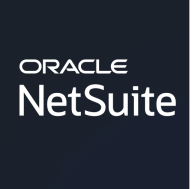

NetSuite ERP and QuickBooks compete in the enterprise resource planning and accounting software category. NetSuite holds an edge due to its advanced scalability, multi-channel capabilities, and comprehensive features, whereas QuickBooks excels in ease of use and affordability for small businesses.
Features: NetSuite ERP offers robust role-based workflows tailored to enhance operational efficiency, seamless general ledger postings, and strong project management tools. QuickBooks is preferred for small businesses with its straightforward accounting, banking reconciliation, and accessible reporting features.
Room for Improvement: NetSuite's CRM module needs more sophisticated user-friendly features, and fixed asset and manufacturing modules require enhancements. There is still a need for significant human intervention during module selection, which can impede mass adoption. QuickBooks could upgrade its reporting capabilities and integration ease with third-party applications, while its search and import functions require refinement to handle larger data volumes.
Ease of Deployment and Customer Service: NetSuite is primarily deployed on public cloud platforms, offering accessibility but potentially moderate technical support due to less experienced staff. QuickBooks provides flexible deployment options, including on-premises and private cloud, paired with generally excellent technical support though some users report delayed responses.
Pricing and ROI: NetSuite's pricing varies greatly with modules and user numbers, making it less suitable for smaller organizations despite potentially high long-term returns. QuickBooks has an affordable and simple pricing model attractive to small businesses, but its scalability limitations could affect long-term ROI. QuickBooks is cost-effective for smaller setups, while NetSuite is favored in larger enterprises due to its extensive capabilities.
| Product | Market Share (%) |
|---|---|
| QuickBooks | 5.6% |
| NetSuite ERP | 6.1% |
| Other | 88.3% |


| Company Size | Count |
|---|---|
| Small Business | 27 |
| Midsize Enterprise | 6 |
| Large Enterprise | 5 |
| Company Size | Count |
|---|---|
| Small Business | 12 |
| Midsize Enterprise | 1 |
| Large Enterprise | 4 |
NetSuite ERP (Enterprise Resource Planning) is a cloud-based business management software that provides a suite of applications to support various business functions, such as finance, accounting, order management, inventory management, and human resources. It is designed to help organizations streamline and automate their operations, improve decision-making, and increase visibility into key performance metrics. NetSuite ERP integrates all business processes in a single system, providing a real-time, unified view of the business and enabling organizations to manage their operations more efficiently and effectively.
NetSuite ERP Features
NetSuite ERP has many valuable key features. Some of the most useful ones include:
NetSuite ERP Benefits
There are many benefits to implementing NetSuite ERP. Some of the biggest advantages the solution offers include:
Reviews from Real Users
NetSuite ERP is a solution that stands out when compared to many of its competitors. Some of its major advantages are its friendly user interface, customizable dashboards, reporting, scalability, stability, and much more.
GirirajInja, Head of IT operations at Karma technology, says, "As NetSuite ERP is a cloud product, a valuable feature I found in it is the very friendly user interface. You can set up shortcuts within the applications for frequently used reports or navigation. You can also customize dashboards in NetSuite ERP. Another feature I found valuable in the solution is good reporting. It has many industry-standard reports focused on finance and inventory. I also like the seamless switching between production and test environments and that you can customize the environments within NetSuite ERP.”
Another PeerSpot user, Mohammed I., Sales Manager at Inspirria Cloudtech, states, "NetSuite is significantly more affordable than Oracle EBS and offers a wider range of features than other OEMs.” He also adds, “[It] includes multiple modules, is scalable, and stable.”
QuickBooks Desktop is a robust accounting software solution that provides a comprehensive set of features for small to medium-sized businesses. It offers advanced functionality, industry-specific versions, and integration capabilities to streamline financial management tasks. By utilizing QuickBooks Desktop, businesses can efficiently handle their accounting needs, generate accurate financial reports, and make informed decisions to drive growth and success.
QuickBooks Desktop Features:
QuickBooks Desktop Benefits:
Reviews from Real Users
Mimi Evans, owner & operator at Fearless Bookkeeping Services LLC, writes that QuickBooks Online has “Useful importing capability, beneficial inventory module, but lacking automation”
Another PeerSpot user, managing Partner at a tech services company, states that QuickBooks Online “Provides excellent tracking of my finances and is easy to use and deploy”.
Max Rubin, CFO at Make The Switch, says that "QuickBooks Online has improved my organization by offering a vast array of integrations with other products that allow you to improve process efficiencies while keeping the cost of your ERP or accounting software affordable."
We monitor all Billing Software reviews to prevent fraudulent reviews and keep review quality high. We do not post reviews by company employees or direct competitors. We validate each review for authenticity via cross-reference with LinkedIn, and personal follow-up with the reviewer when necessary.